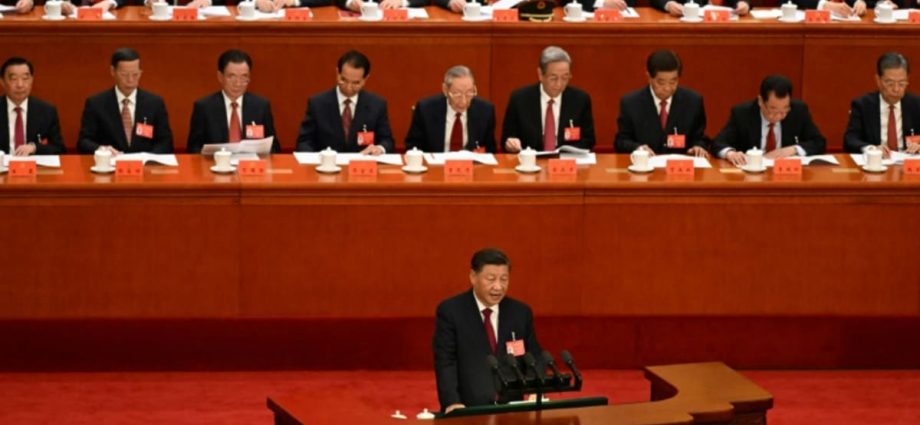
BEIJING: China’s five-yearly Communist Party Congress will end on Saturday (Oct 22), with President Xi Jinping likely to seal a norm-breaking third term in power.
The closing ceremony at Beijing’s Great Hall of the People tops off a week of largely rubber-stamp meetings among 2,300 party delegates, who will approve a reshuffle of the party’s top leadership likely to have been determined well in advance.
Xi is widely expected to be unveiled as general secretary on Sunday, shortly after the first meeting of the newly elected Central Committee, a 200-member body of the party’s most senior officials.
This will allow Xi to sail through to a third term as China’s president, due to be announced during the government’s annual legislative sessions in March.
Xi previously abolished the presidential two-term limit in 2018, paving the way for him to rule indefinitely.
The weekend will also see the new Central Committee approve a reshuffled 25-member Politburo, as well as a Politburo Standing – China’s apex of power – of around seven people, which analysts expect to be stacked full of Xi allies.
At Sunday’s Congress opening ceremony, Xi delivered a 105-minute “work report” lauding the party’s achievements and glossing over domestic problems such as the stalling economy and the damage wrought by his harsh zero-Covid policy.
Heavy on ideological rhetoric and light on policy, a defiant Xi also urged Communist Party members to steel themselves against numerous challenges including a hardening geopolitical climate.
“We must … be ready to withstand high winds, choppy waters and even dangerous storms,” he said.
“Confronted with drastic changes in the international landscape, especially external attempts to blackmail, contain, (and) blockade … China, we have put our national interests first.”
Security was also a main focus of the speech, in which Xi lauded Hong Kong’s transition from “chaos to governance” and vowed to “never commit to abandoning the use of force” to seize the self-ruled island of Taiwan.
The work report “is a carefully scripted drama through which the power of the Party, its leader, and its ideas are meant to be elevated and amplified”, wrote David Bandurski, editor of the University of Hong Kong’s China Media Project.

